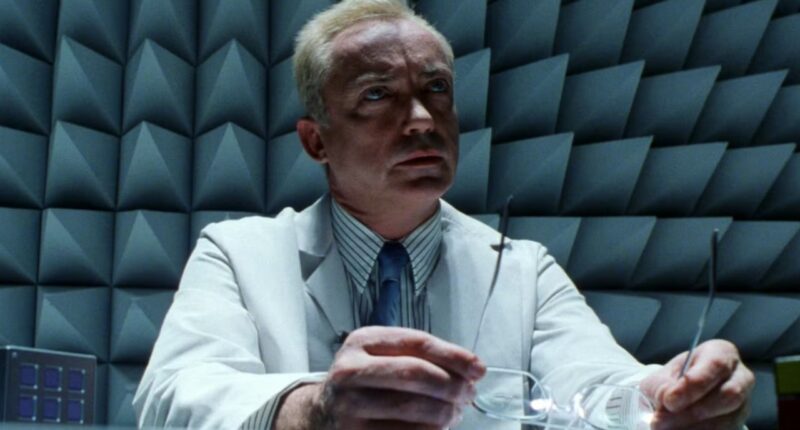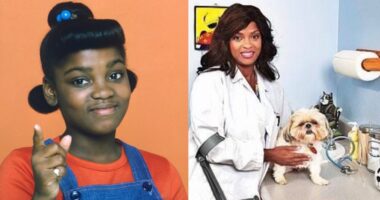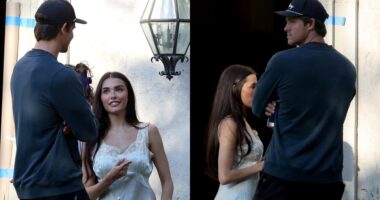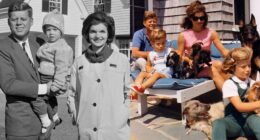German actor Udo Kier, a prolific and unforgettable presence in over 200 films, passed away on November 23, 2025, at the age of 81. His death was confirmed by his partner, artist Delbert McBride. While his career was defined by a stunning range of characters, from arthouse pioneers to Hollywood villains, his own life as a gay man was lived openly and without apology.
In his later years, both his personal identity and his professional legacy became deeply intertwined with the queer community he was always a part of.
An Open Life and a Lasting Partnership
Udo Kier was gay and was open about his sexuality throughout his life. In an industry where such matters were often kept private, he stated, “No one ever asked about my sexuality. Maybe it was obvious, but it didn’t make any difference because all that mattered was the role I was playing. As long as I did a good job on the part, no one cared about my sexuality.” For decades, Kier shared his life with artist Delbert McBride. The two made their home in Palm Springs, California, a place Kier loved.
Their life together was filled with the same distinctive charm that characterized Kier’s persona. Their home, a former mid-century library, was a reflection of the actor himself: filled with stories, art, and curious objects. Friendships were important to Kier, and his emails, often signed with “I MISS YOU. BEST UDO,” revealed a man who was deeply loyal and caring. His home life included unique touches like a plastic horse named Max guarding the gate and a grumpy turtle named Han Solo who roamed the property. It was a life built on stability, creativity, and mutual support, far from the chaotic worlds of many of his characters.
You Might Like: Is Erika Kirk Pregnant? Separating Fact from Fiction
A Deepening Queer Legacy On-Screen
UDO KIER: giant of queer cinema and arguably (barely) the greatest character actor in the history of film. Warhol, Von Trier, Argento, Jancsó, Fassbinder, Van Sant, Sonnenfeld, Wenders, Tarantino, Lynch, Herzog, Maddin, Zahler, Alverson, Filho, Kosinski. 275 credits. Legend. RIP. pic.twitter.com/tb4v2vXoGX
— Sean (THE PODCAST PANTHEON IN STORES NOW) Malin (@cinemalins) November 24, 2025
While Kier’s personal life was an open book, his on-screen roles began to more explicitly reflect his own identity later in his career. He worked with a remarkable roster of gay directors, including Rainer Werner Fassbinder, Gus Van Sant, and Lars von Trier, contributing to a queering of cinema from behind the scenes. However, it was in the 2022 film Swan Song that his personal and professional legacies fully converged.
Also See: The Meaning of Despot and the Political Drama
In Swan Song, directed by the openly gay Todd Stephens, Kier delivered a celebrated leading performance as Pat Pitsenbarger, a retired, flamboyant hairdresser modeled on a real-life gay figure from Stephens’ hometown. The film serves as an elegy to a generation of queer elders who paved the way for modern LGBTQ+ freedoms. Kier’s own history mirrored this narrative; having grown up in Germany, where homosexuality could lead to arrest, he expressed wonder at the rapid social progress, noting you could now see same-sex couples “holding hands at Applebee’s.” For an actor who began his career at a time when queer implications were cut from scripts, starring in this poignant love letter to queer resilience was a powerful, full-circle moment.
Udo Kier’s legacy is a rich tapestry woven from iconic film roles, a fearless artistic spirit, and a quiet, consistent pride in who he was. He will be remembered not only for the monsters and villains he portrayed with such relish but also for the dignified, normal life he built with his partner and for his heartfelt contributions to queer storytelling.








